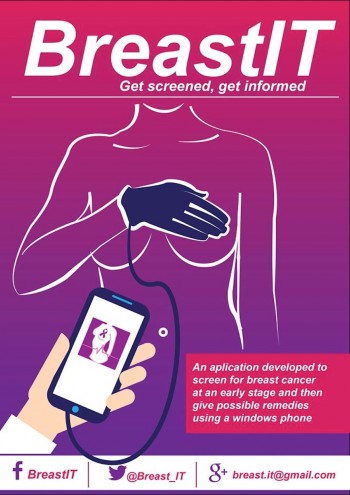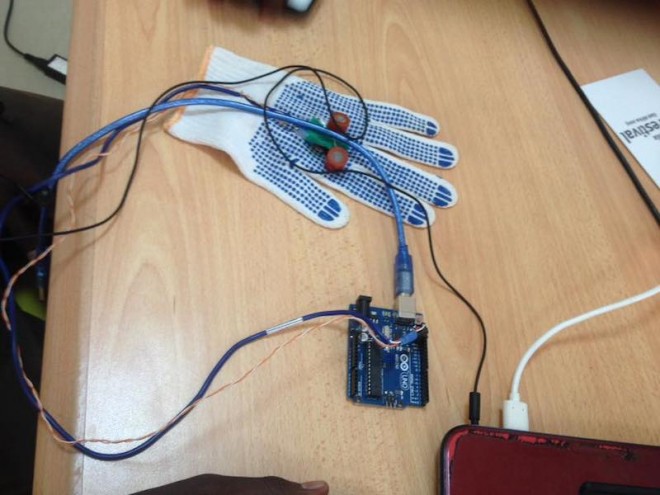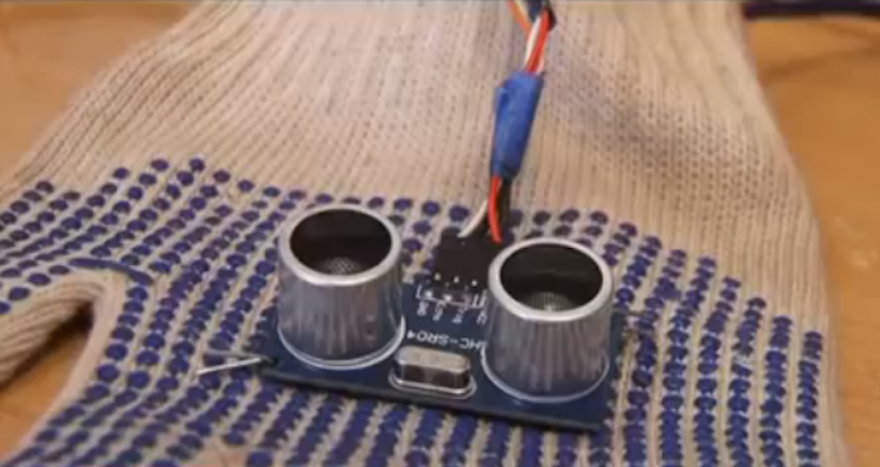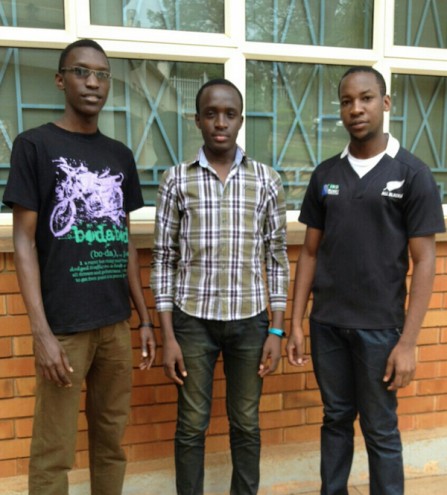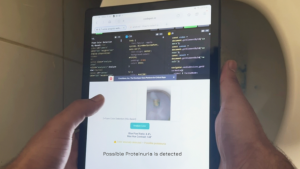Recently there have been major advances in cancer research and treatments coming from African innovators: Nigerian-born Dr Samuel Achilefu invent glasses that enable doctors to see cancer cells in the dark. Now, three young Ugandan visionaries have turned their passion for IT into a life-saving breast cancer self-detection app called BreastIT, with the hopes of increasing the number of breast cancer survivors through early detection.
Three Information Technology graduates from Makerere University in Uganda, Moris Atwine, Kabwama Alvin Leonard, Lwangwa Mwesigwa David, created Team Hyphen in September 2013. When Atwine lost a relative to breast cancer the three tech graduates put their knowledge towards developing an app that could potentially save lives.
The app uses a simple process of collecting images of the inner breast, analysing them and then sending through a diagnosis.
The images are obtained through the use of an external hardware glove attached to a cellphone via a cable. Piezoelectric crystals (which convert mechanical energy into electricity or vice-versa) are attached to the palm area of the glove.
When the glove is hovered over the breast the crystals generate ultrasound waves that scan the inner part of the breast until clear images can be seen. These images are sent to the phone via Bluetooth for analysis. These images are run through a mobile Windows OS database, which performs an analysis and sends back results that can be saved to the phone and shared with medical professionals.
In addition to being a diagnostic tool, the app also has a video tutorial on how to check your breasts for anomalies, as well as information on lifestyles risk factors. The app also provides information on the nearest radiologists, making it easier and quicker to seek medical advice, particularly in places like rural Uganda where there is a scarcity of medical consultants and specialists.
The three men researched the prevalence of breast cancer in Sub-Saharan Africa and found that while women in this region have a low incidence of developing breast cancer, those that do develop the disease are statistically ten years younger than their Western counterparts. BreastIT hopes to save young women from the disease through easy access to early detection processes and treatment. The greatest advantage of BreastIT is that it is cheap and portable.
“There is nothing quite like the satisfaction that comes from solving a real challenge that fellow Africans and the whole world faces” says team leader and developer Moris Atwine.
BreastIT won 1st Runners Up at the Ugandan ACIA Awards 2015, an annual initiative that fosters innovation through the recognition and reward of outstanding ICT innovations.

